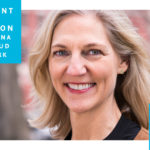This article by Paul Meissner talks about Global Social Benefit Incubator, a SOCAP12 sponsor, and subject matter which will also be covered in SOCAP12 session – Voices from the Valley: New Perspectives on Impact Investing. The article was originally published by SOCAP12 media partner, Dowser. Look for more stories from Dowser out of SOCAP12.
—
Farmers of IDE-India testing out new agricultural technologies. (Photo Courtesy of IDE)
![]() From August 12 to 24, a group of 19 social entrepreneurs from all over the world is in Silicon Valley for the Global Social Benefit Incubator (GSBI), of the Center for Science, Technology, and Society at Santa Clara University. The program combines months of online mentoring and exercises led by Valley executives and industry experts with a two-week “boot camp” of back-to-back classes, capped by a public business-plan presentation event. The program is designed to help entrepreneurs expand and magnify the impact of their social ventures, and prepare their business plans for presentation to potential partners and funders.
From August 12 to 24, a group of 19 social entrepreneurs from all over the world is in Silicon Valley for the Global Social Benefit Incubator (GSBI), of the Center for Science, Technology, and Society at Santa Clara University. The program combines months of online mentoring and exercises led by Valley executives and industry experts with a two-week “boot camp” of back-to-back classes, capped by a public business-plan presentation event. The program is designed to help entrepreneurs expand and magnify the impact of their social ventures, and prepare their business plans for presentation to potential partners and funders.
Some of the participants at the GSBI are sharing dispatches from the 10th annual GSBI with Dowser. Dr. Paul Meissner, one of the 70 mentors who volunteer their time to work with social entrepreneurs, shared his thoughts.
—
IMPACT MENTORING
Every year, I look forward to mid-August, when the cohort of social entrepreneurs comes to the Global Social Benefit Incubator. This year I am privileged to work with Hugo Verkuijl, CEO of Mali Biocarburant who produces bio-oils and fuels that are generated locally.
For mentoring to have its greatest impact, it must be a life-changing experience for both the mentor and the entrepreneur. Whether the social entrepreneur is advanced in developing his business, or is just nucleating an idea, I find that mentoring is more than simply “giving back,” or sharing real-life experience from the Silicon Valley. Let’s face it, many parts of the world are as innovative, as fast moving, and breakthrough-producing as we are.
For me it is an in-depth way to open my eyes to parts of the world I would never have known otherwise, and a path to relationships I would never have had had I simply decided to write a check to a worthy international aid organization.
Maybe the easiest way to describe what I mean is to relate my experience with Global Easy Water Products (GEWP) back in 2005. Suresh Subramanian, the brilliant and hardworking board member of this for-profit offshoot of the non-profit International Development Enterprises India (IDEI), where he was COO, came to Santa Clara to get help create a business model to reach subsistence farmers who could use drip irrigation to provide food for their families. It became clear right away that just like many Silicon Valley startups, he had trouble deciding on his target markets and didn’t understand how much money he needed to scale.
Suresh had a heart for subsistence small-plot farmers who desperately needed help but were expensive to educate and hard to reach given his limited distribution network. We spent time together online and then for two weeks on SCU’s campus and found a new way to segment his markets. He realized in the end that to impact subsistence farmers he needed to first focus on more-established farmers who understood drip irrigation and could save a lot of money by using his much cheaper solution. Once his distribution channel was in place, he could better reach those in most need of the social benefit of his product.
Suresh then took this model and worked with agribusiness enterprises in India like sugarcane mills, which agreed to provide very short-term agricultural loans to farmer to buy the drip systems. In exchange, they received price guarantees on the sugarcane produced.
After sorting out the market, Suresh presented me and my fellow mentor, a Silicon Valley private investor named Bob Dench, with a financial model using quarterly and annual figures. He concluded he needed just over $100K to launch his expansion. Not having the least experience in agriculture, I completely missed a critical issue with the model that was caught right away by Bob, who has years of experience in agri-business. The key to the financial model was MONTHLY cash burn, taking into account the seasonal planting and revenue cycles of the business. This simple change to the calculation meant the real cash need was more than 5x larger than the quarterly model predicted.
Getting this insider’s perspective on rural markets, agricultural business and Indian markets brought me to a much better understanding of our small planet, and taught me how an idea and a relationship can impact many thousands of lives.
The energy and excitement created during these late-night working sessions led to celebrations as Bob and I watched Suresh get $1MM in equity funding from Acumen Fund and successfully ramp his business to $4MM per year. GEWP is still a successful for-profit enterprise, seven years later.
Like anything that requires you to really understand something that is foreign or to step far outside your comfort zone, being a mentor to a global social entrepreneur is a thrill, an exciting way to challenge your creativity and innovation in ways even Silicon Valley never imagined. I’ve come away different as a human being, richer and more connected in a globalizing world that needs innovation and collaboration more than ever.
–
Powered by:




